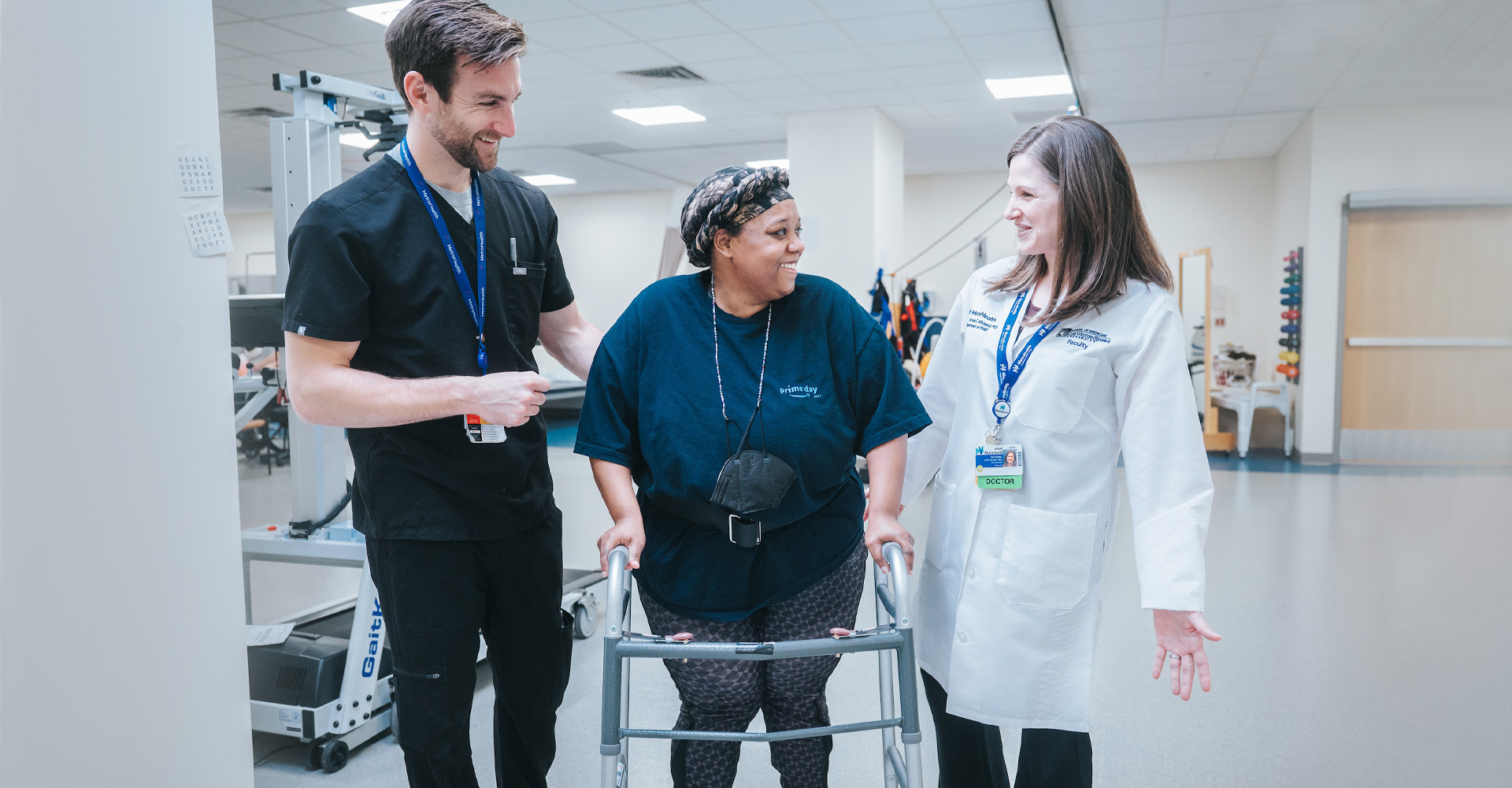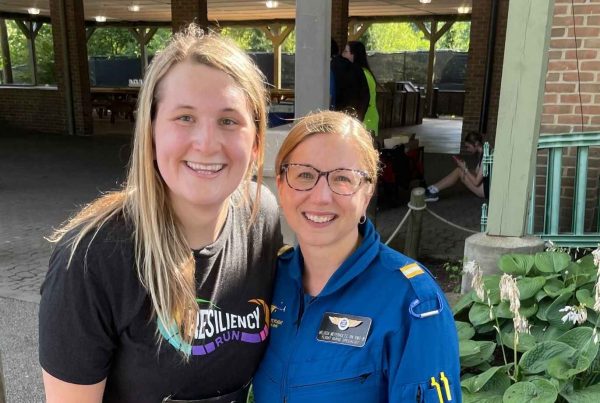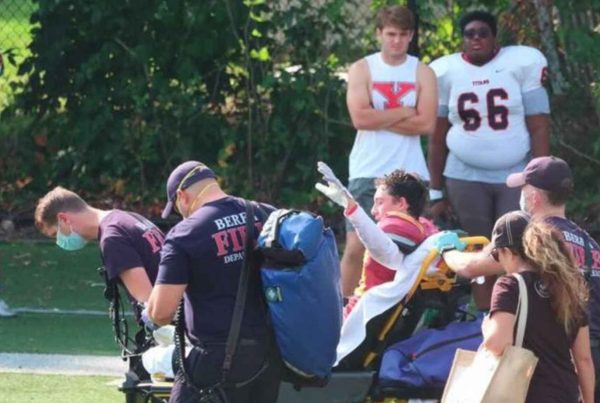No one plans to need inpatient physical rehabilitation. When a stroke, brain injury, spinal cord injury or other trauma happens, it’s often shocking. Your world (and that of your family) can feel turned upside down. However, when inpatient rehabilitation care is necessary, choosing the right facility becomes essential to recovery and long-term outcomes.
Even in a sudden traumatic situation, you have a choice of care, so we encourage you to research inpatient rehabilitation facilities and ask questions about areas of expertise, patient experience, and continuing care after inpatient rehabilitation.
At MetroHealth, we have a dedicated team whose sole purpose is to help address those questions and advocate for patients and families. Hallie Phelan, Rehabilitation Liaison, heads up that team at MetroHealth Rehabilitation Institute. Every liaison has a clinical background in physical, occupational or speech therapy, allowing them to be a bridge between the patient and family and the clinical care team.
“It’s often an overwhelming time for patients and families, so with our background, we can help guide their transition from acute care hospital to inpatient rehabilitation. We provide education, discuss expectations and explain how we differ from other facilities,” Hallie explains. “Oftentimes, we’re a family’s first glimmer of hope. They have made it through the traumatic event and now see an opportunity for recovery—that’ s my favorite part.”
Hallie says patients come to the MetroHealth Rehabilitation Institute from both inside and outside MetroHealth. Someone may enter MetroHealth’s Level I Trauma Center and then move to its inpatient physical rehabilitation facility. Others come to MetroHealth from an acute hospital elsewhere. One referral, Hallie says, came from as far away as Guam because the referring physician was familiar with MetroHealth’s deep expertise and research in treating spinal cord injury.
Patients and families most commonly ask about the nurse-patient ratio, the availability of physicians (MetroHealth has a physician on-site 24/7) and overall patient experience. While these are important questions, Hallie encourages families to dig deeper, as the best possible health outcomes depend on the effectiveness—and experience—of the caregiver team. (Download our inpatient guide for more.)
“Ask why the clinical team is best suited to care for the patient,” she advises. “At MetroHealth, our physicians are all board-certified and have subspecialty training. And our nurses don’t float—they are experts in their areas. For example, nurses in the stroke unit are always in the stroke unit. The same applies to brain injury or spinal cord injury. That’s important because they become experts in treating particular conditions.”
Hallie recommends asking 10 questions of every inpatient rehabilitation facility:
- What kind of experience does the team have with rehabilitating this type of injury?
- Does this facility have a positive, uplifting environment that will celebrate and encourage progress?
- What is communication like with the care team? Do we get direct access to them?
- Are there nurses with subspecialized training?
- Are there therapists with subspecialized rehabilitation training in stroke, brain injury, spinal cord injury and multi-system trauma?
- Are there board-certified physicians who work in complex rehabilitation, such as brain injury and spinal cord injury medicine?
- How can this facility help patients return to daily life after treatment?
- Why outpatient services or clinics do you offer for this type of injury?
- How do you prepare patients and their families for the next step in their recovery?
- Is there a research component to the program that helps improve quality of life or brings new treatments to patients?
Witnessing Expertise
Hallie works at MetroHealth because she believes it’s the best inpatient rehabilitation facility in the region—and one of the best nationally. When talking to patients and families, she highlights the specialized units for stroke, brain injury, spinal cord injury and major trauma rehabilitation. Plus, she’s seen firsthand how MetroHealth’s research has improved patient outcomes and quality of life—thanks to MetroHealth’s standing as one of the top recipients of National Institutes for Health funding. Finally, as an occupational therapist, she highly values the physical, occupational and speech therapists and how the inpatient and outpatient teams work together to help patients transition to the next step.
Start Your Research Today
Interested in learning more about the MetroHealth Rehabilitation Institute? Download our inpatient rehabilitation guide, visit us online or call admissions at 216-778-4167 to arrange a tour or discuss services.











